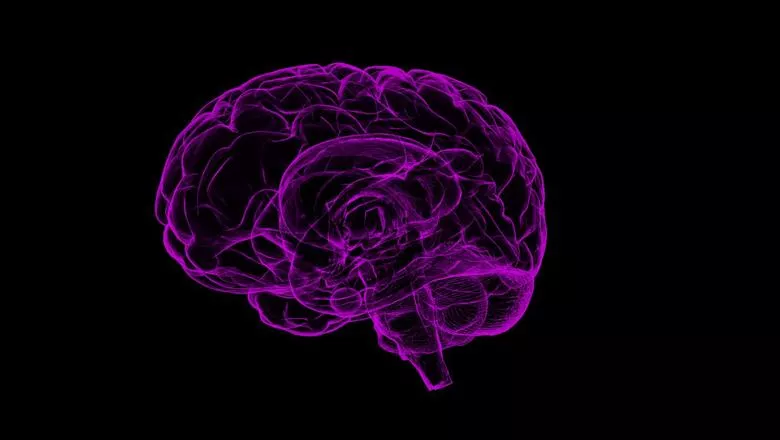We are extremely grateful for the ARIA funding. It allows us to combine our expertise and ambitions to advance potentially life-changing therapies for patients. This fundings means we can make huge strides towards transformative treatments for severe neurological diseases over the next 4 years.”
Dr Richard Rosch, Clinical Lecturer at the Department of Basic & Clinical Neuroscience
20 January 2025
King's researchers received ARIA Precision Neurotechnologies Programme funding
Funding was awarded to Dr Rosch to research neuropsychiatric disorders and Dr Pouliopoulos to investigate the blood-brain-barrier

Dr Richard Rosch from Institute of Psychiatry, Psychology & Neuroscience and Dr Antonios Pouliopoulos from Faculty of Life Sciences & Medicine at King's College London have received funding from ARIA (Advance Research + Invention Agency) as part of two international collaborations. ARIA is a Research & Development funding agency, sponsored by the Department for Science, Innovation and Technology. ARIA focuses on projects with potential to produce technological change, or a paradigm shift in an area of science.
Minimally invasive self-regulating gene therapy for neuropsychiatric disorders
Dr Richard Rosch, Clinical Lecturer at the Department of Basic & Clinical Neuroscience, is part of the international collaboration to develop new gene therapy for neuropsychiatric disorders. The project, starting in February 2025, addresses a major challenge currently facing existing therapies for neuropsychiatric disorders.
The project will focus on epilepsy, schizophrenia and dementia; conditions that affect over 100 million individuals worldwide and are characterised by both intermittent symptoms and persistent or progressive neuronal network changes. Current therapies focus on reducing the frequency and/or severity of episodic symptoms, typically using drugs that affect the entire brain. This can result in substantial side effects and decreased efficiency over prolonged use.
The project will use molecular therapy to address the underlying neuronal circuit dysfunction that leads to these episodes. The new therapy will be region-specific, targeting only dysfunctional nerve cells and sparing any intermingled normal cells, and will use a minimally invasive mode of delivery to the brain. The aim is to reverse the dysfunction in the brain circuit to a stable physiological “ground state” that is more resilient, restoring normal function of the brain.
Mosaic Neuropharmacology with Focused Ultrasound
Dr Antonios Pouliopoulos, Lecturer in Therapeutic Ultrasound at the School of Biomedical Engineering & Imaging Sciences, has been awarded a grant to develop a revolutionary ultrasound technique aimed at delivering drugs across the blood-brain barrier, as part of a large team led by Dr. James Choi at Imperial College London. This pioneering project, supported by a £3.9 million grant under ARIA's Precision Neurotechnology call, represents a high-risk, high-reward approach to tackling complex neurological conditions.
The research focuses on a non-invasive method to open the blood-brain barrier (BBB) temporarily, allowing precise drug delivery to targeted regions in the brain. The technique utilizes focused ultrasound to create millimetre-wide openings in the BBB, significantly enhancing treatment precision while minimizing risks. The overall aim of this project is to deliver a variety of powerful drugs into different brain regions, by adapting the shape of the acoustic stimulus generated by the ultrasound device.
Dr Pouliopoulos' team will be developing an "ultrasound GPS" system, a key element of the project. This innovative guidance tool will enable real-time navigation and drug delivery by correlating ultrasound imaging with patient-specific MRI or CT scans. This approach ensures that treatments are fast, accurate, and personalised to the patient’s unique brain and skull anatomy.
The initial application will target tinnitus, a condition affecting millions worldwide. The research, also an international collaboration between researchers from Imperial College London, the University of Michigan, and the University of Arizona, holds promise for treating other challenging neurological disorders, including Alzheimer's, Parkinson's, and brain tumours. The project’s long-term vision includes making these treatments available beyond hospitals, eventually empowering patients to receive care at home with portable or wearable devices.
We are grateful to ARIA for supporting our team's vision to develop a novel ultrasound-based system, which will be able to precisely control neural circuits deep inside the brain. We are excited to embark on this journey with an international team of brilliant scientists, who are uniquely positioned to carry out this challenging project. Our overall goal is to shape the future of brain disorder treatment, by developing ultrasound interventions that are non-invasive, targeted, and kind to patients.
Dr Antonis Pouliopoulos, Lecturer at the School of Biomedical Engineering & Imaging Sciences


